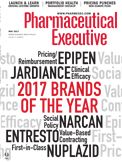Don’t be the Next #Hashtag
Pharmaceutical Executive
Recent PR disasters in other industries raise an important reputational question that can apply to pharma as well: do you want to be someone that works the system or improves the system?
I had a number of headlines to choose from for this month’s letter, including “Don’t Be That Guy” and “Optics Matter.” I’m writing this two days after the #United “re-accommodation” incident, seven days after #Delta’s massive cancellation problem, and eight days after #Pepsi’s TV ad was pulled for insensitivity to the Black Lives Matter movement. And that’s the lesson. In today’s social media environment, and ready access to smartphone cameras, anything you do or say (or don’t do and don’t say) can be used against you. Factor into account that the grocery industry-under which beverages fall-has a 36% positive rating with Gallup; airline industry 15% positive and pharmaceuticals -23% net positive. You see where we are going with this.
It used to be that if a person had a positive experience with your brand, they would tell two people. If the experience was bad, they would tell eight. Now multiply that by social media standards and well, I rest my case. Digging out from a PR disaster a la United, Delta and Pepsi is more possible in an industry not fraught with the negative public perception problems pharma has. For the aforementioned industries’ CEOs, it seems the public relations path is to stand fast behind their reasons and policies, and then they play catch up with apologies when the social media piles on.
But for pharma, when the crisis hits, they dig in and say, “it’s the system.” And to be honest, they are right. Shrkeli was right; he was allowed to raise the prices for Dariprim. Bresch was allowed to raise the prices in the middle of a complex distribution system, where everybody gets their cut. But do you want to be right and “work the system” or do you want to do right by your consumers?
And therein lies the road to patient centricity in the life sciences and healthcare industries. Patient engagement. The patient journey. The focus to flip what the company policies and standard operating procedures are, to look at your company or brand through the eyes of the people who use your product. Be it United, Delta, Pepsi, or EpiPen, take a walk in your customer’s shoes. Granted, lives are at stake with EpiPen, which is the inherently underlying issue in pharma. Sometimes it is a matter of life or death. That’s why we have Right to Try laws, expanded access, compassionate use programs, breakthrough designations and more, to get potential life-saving medications to patients more quickly.
Our May issue cover story features the Brand Impacts of the Year. We chose five for varying aspects of pharma they shine a light on...social programs, pricing and reimbursement, value-based contracting, unmet medical need and clinical efficacy. Of the five, two actually could mean the difference between life and death, EpiPen and Narcan. Interestingly enough, both are delivered via auto-injector and both are purchased by hospitals, schools, police departments, EMS departments, and individuals. Narcan does not need a prescription. It is also now available in a nasal spray. Both, when used quickly, will save the person suffering from anaphylactic shock or heroin overdose, respectively. We chose EpiPen for its impact on the complexity of pricing and reimbursement issues that became overwhelmingly apparent, and Narcan for its affect on social programs and policies in this country.
The remaining three brands are Nuplazid, Entresto and Jardiance, chosen for meeting an unmet need, value-based contracting and clinical efficacy, respectively. These three fall under the category of life-changing, not life-saving, which is still very, very important in considering the patient journey.
Honestly, many people who were consulted on the choices for Brand of the Year were not on-board at all with the EpiPen. Comments basically centered on why we shouldn’t highlight the downside of the industry; and if we mention EpiPen, then we have to tackle Turing and Valeant in the same breath. I disagree.
Starting with the EpiPen essay, I take a quote from a consultant who instructed that all healthcare organizations could learn from what happened with Mylan. Central to his lessons is trust. Trust is invaluable in healthcare, he says. And trust is central to any people-centric journey any corporation plans to take their consumers on. So that’s why EpiPen is one of our choices this year. “If you can’t be a good example, then you’ll just have to be a horrible warning,” attributed to novelist Catherine Aird. EpiPen also begins a dialogue on a complex su ply chain that everyday people-even industry insiders-can’t begin to fathom. Everyone makes choices everyday. Do you want to be the person that works the system or improves the system? Do you want to be yet another reason why millions of people are skeptical about the world they live in? Do you want to be that guy? 99.9% of people in this industry don’t.

Lisa Henderson is Editor-in-Chief of Pharm Exec. She can be reached at lisa.henderson@ubm.com. Follow Lisa on Twitter: @trialsonline

Addressing Disparities in Psoriasis Trials: Takeda's Strategies for Inclusivity in Clinical Research
April 14th 2025LaShell Robinson, Head of Global Feasibility and Trial Equity at Takeda, speaks about the company's strategies to engage patients in underrepresented populations in its phase III psoriasis trials.
Beyond the Prescription: Pharma's Role in Digital Health Conversations
April 1st 2025Join us for an insightful conversation with Jennifer Harakal, Head of Regulatory Affairs at Canopy Life Sciences, as we unpack the evolving intersection of social media and healthcare decisions. Discover how pharmaceutical companies can navigate regulatory challenges while meaningfully engaging with consumers in digital spaces. Jennifer shares expert strategies for responsible marketing, working with influencers, and creating educational content that bridges the gap between patients and healthcare providers. A must-listen for pharma marketers looking to build trust and compliance in today's social media landscape.